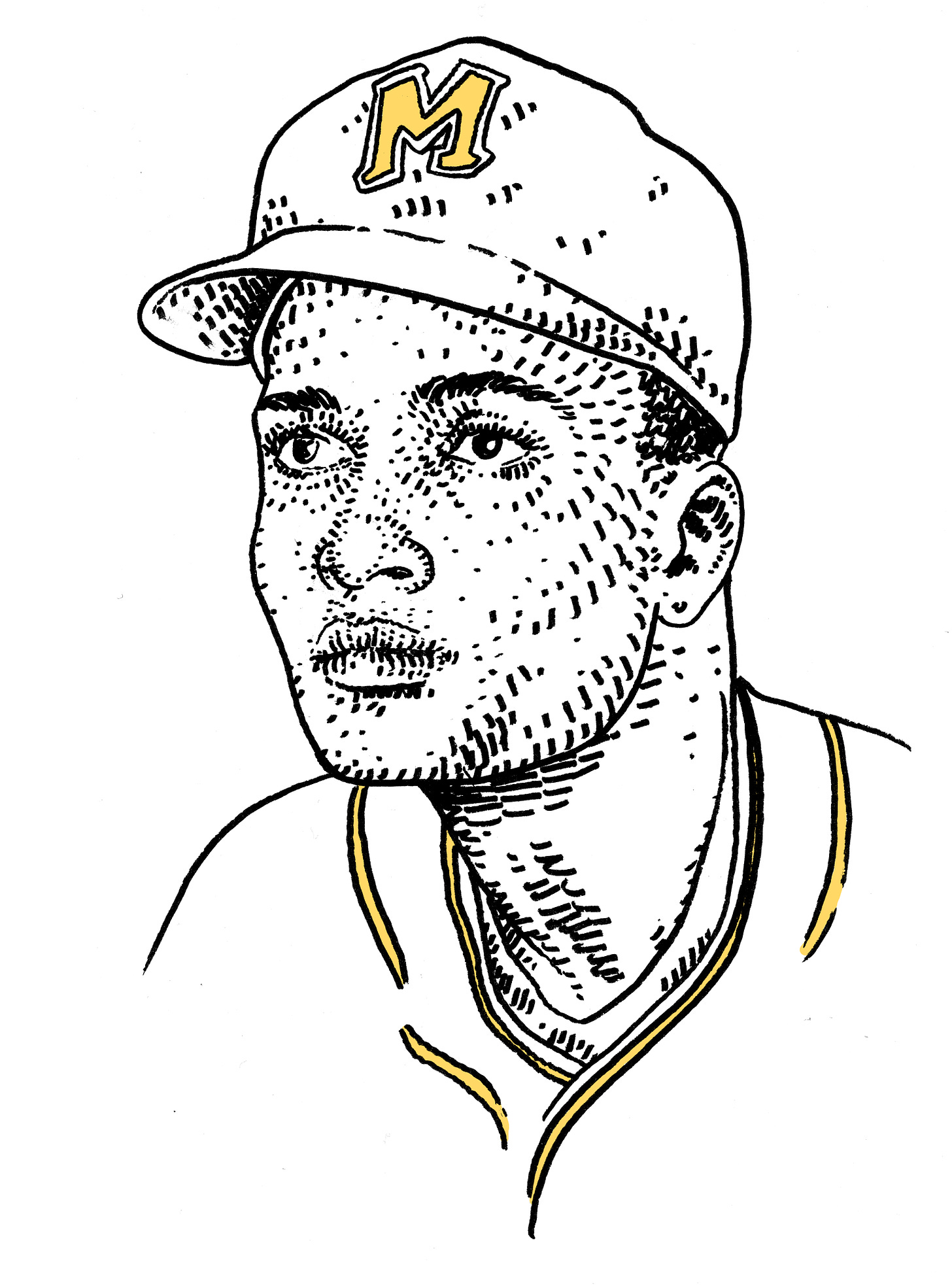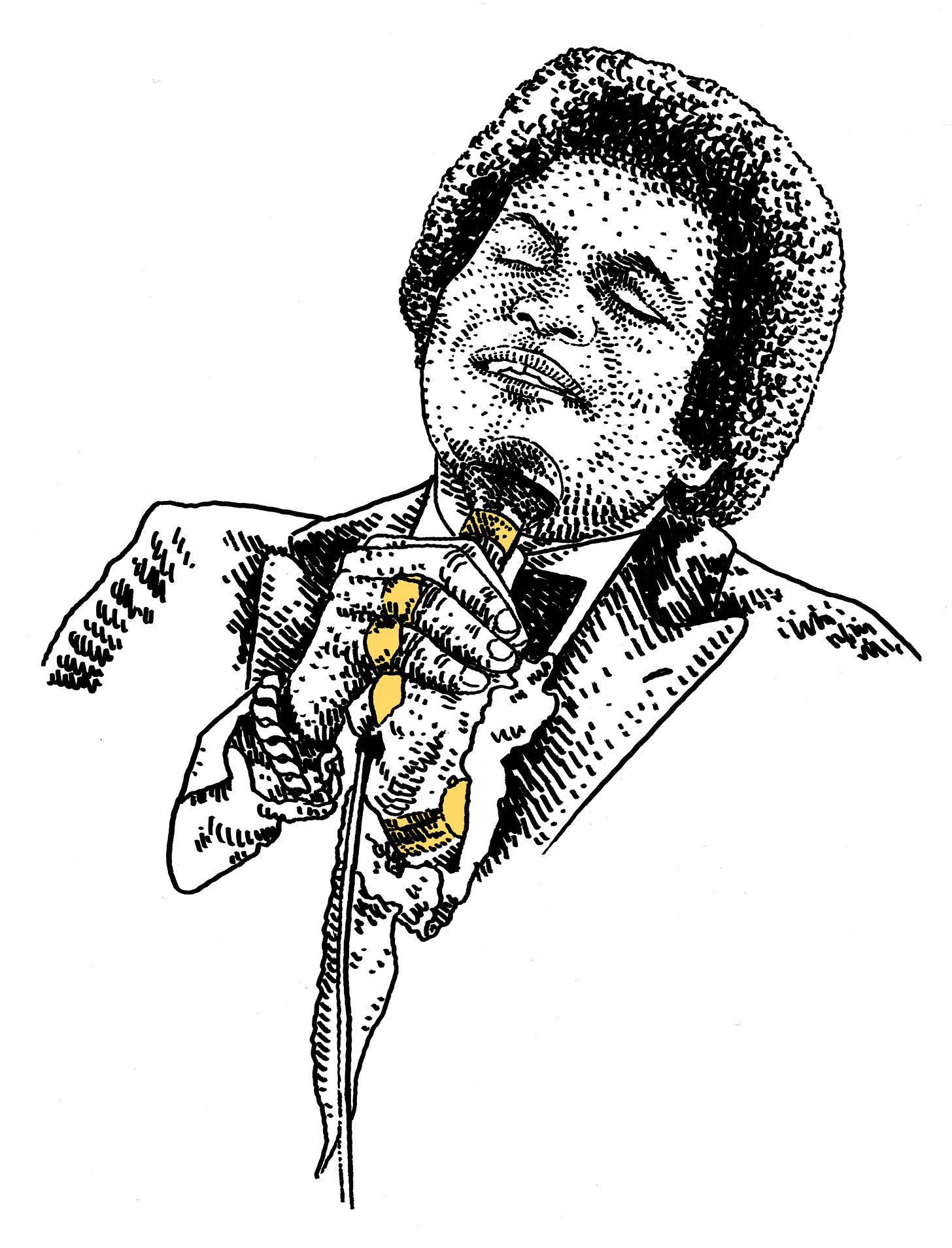Charley Pride's America
Baseball and music and race in this country are all part of the same story.
Sometimes people ask how Adam and I choose the subjects for Sports Stories. And every time they ask, I struggle to answer. I guess it comes down to our tastes and our curiosity and our capacity to be surprised and moved. We love the notion of biography: the story of a life. We believe in the dignity of a person’s choices and work they do. In the end, some of those lives resonate with us and some stories just feel like Sports Stories -- you know ‘em when you see ‘em.
That’s how I feel about Charley Pride, who passed away last week from Covid-19 complications. He was 86 years old. The sum of those years amounts to a life that was bigger and more meaningful than we can really contextualize in this space. He was the first Black country music superstar -- and it's not like there have been many since -- but even describing him that way moves him straight to the realm of the lifetime achievement award and out of the realm of the actual life Pride lived.
It seems worth noting here that I am neither a Black man nor a country music expert. But part of the legacy of Charley Pride is baseball, and the way the sport intersected with everything else happening in America in the middle of the twentieth century. The baseball life of Charley Pride merits our attention and it could be a story unto itself -- but it also can’t, because you could never untangle it from race and politics and religion, and of course country and western music.
Charley Pride was born in a shotgun shack to a sharecropper family in the Mississippi Delta, the cradle of blues music. But his father was a religious fundamentalist -- he thought the blues was the tool of the devil, so the family turned their radio to the Grand Ole Opry broadcast out of Nashville, Tennessee and eventually, that was where Charley would end up. He started playing guitar at 14, but he picked up a baseball long before that.
He told interviewers that he never wanted to be a sharecropper like his dad, that he used to sit in the cotton fields and watch the clouds float by and wish that he was floating with them, and that Jackie Robinson breaking in with the Dodgers gave him the belief that he really could float somewhere better. It helped that he was a hell of a ballplayer.
Pride spent the 1950s bouncing between the fading Negro Leagues and the affiliated minors. He pitched, mostly, and he suffered an arm injury that kept him from reaching the heights he otherwise might have. Once, along with a Negro leagues teammate, Pride was traded by the Louisville Clippers to the Birmingham Barons for a used team bus.
After a stint in the army, Pride ended up in Montana of all places. He played minor league ball in Missoula, then after getting cut from the team, he was recruited to suit up for a semi-pro club in Helena. The club was run out of the American Smelting and Refining Company, and it came with a full time job in the lead-making business. At the time, it would have been hard to envision a big league career working out, but it probably would have been even harder to envision country music superstardom. Charley worked full time doing the hot and miserable labor of a smelter operator and played ball for a club called the East Helena Smelterites.
This is where you have to really focus on the details. The Prides were one of a handful of Black families around Helena. Charley’s manager with the Smelterites -- the man who recruited him to join the club -- was a one-armed minor league lifer named Kes Rigler. Rigler had been briefly famous in the 1930s as a proto-Jim Abbott: playing respectable minor league ball with one arm. He was even written up in Ripley’s Believe it or Not. Charley continued to play ball and to sing at night clubs. As his musical reputation grew around Montana, he’d even sing before ball games, helping Rigler draw in fans.
That’s how it went for nearly a decade -- and that’s how it could have stayed. The Prides were happy in Montana. Two of their children were born there. But even when he was working as a smelter operator, Pride continued to dream of a big league career. On some level, he was still watching the clouds go by. He wrote to major league teams seeking tryouts, sending newspaper clippings of his exploits. The California Angels agreed to give him a look as a pitcher, but Pride didn’t have the stuff.
Then one night, Pride found himself booked at a concert in Helena opening up for a pair of real life Nashville stars: Red Foley and Red Sovine. It was a full circle moment. The two Reds were both veterans of the Grand Ole Opry. Charley had chased his childhood baseball dream across the country, but life had brought him right back to that transistor radio his dad used to play in their shotgun shack.
When Foley and Sovine heard Pride sing they said he ought to go directly to Nashville. It didn’t happen immediately, but he went. The circumstances that took Charley Pride from Mississippi to Montana to the Music City are remarkable in and of themselves: the tale of a man chasing a better life and traversing a hard and unforgiving country to find it. Had it not been for baseball, he might have never found himself standing with a guitar before two of country music’s biggest star. Had it not been for racism, he might have found himself there many years earlier.
It sounds corny when you write it down, but Charley Pride grew up dreaming of following in Jackie Robinson’s footsteps and in a sense, he did. When he got to Nashville, he found himself following them in a manner that was more brutal and trying than it would have had he made it as a ballplayer: the racism of labels who didn’t want to sign him and producers who didn’t want to record him and DJs who didn’t want to play his music. The look of painful shock on the faces of white fans the first time they saw him in person. The hard work of winning them over. The constant fight for the respect of his peers and the loneliness of breaking into an industry that had spent decades working to keep people like him out.
Related Reading
You’ll notice I didn’t get into Charley Pride’s musical career here -- or into the racism he faced from the country music establishment. But in addition to having a hell of a voice, Pride had a hell of a way of talking about music and his own life. He strikes me as a gracious, likeable man who was also keenly aware of how bad things were. Pride wrote frankly about race, baseball, music, and even later battles with mental illness in his 1994 memoir which I imagine will find itself back in print soon.
I found Terence McArdle’s obituary of Pride from the Washington Post to be a deeply moving piece of writing. I would urge you to read it. You can also click here to see an extended segment of the Ken Burns Country Music documentary about Pride.
Here’s another powerful clip from that documentary of Pride singing and explaining the beauty of a Kris Kristofferson song:


I would also recommend checking out this deeply researched story on Pride’s Montana days by Curt Syness of the Helena Independent Record. It was published before Pride passed away.
The Pride family ended up in Dallas and Pride became a co-owner of the Rangers in 2010. But long before that, in 1974, he spent three weeks in Spring Training with the club as a player. This news report from that visit is a very cool time capsule. He singled off Jim Palmer!
One other thing I have not hit on yet is the fact that Pride died from Covid-19 mere weeks after attending a large, mask-less indoor musical event: the Country Music Association Awards, at which he received a lifetime achievement award. The CMA has stated that it followed strict protocols for the ceremony, and that Pride tested negative in the days afterward. But it is more than obvious that the ceremony should never have taken place.
A lifetime achievement award was one way to honor Charley Pride. I think a better one might be the following, suggested by musician Cleve Francis: actually working to break down the structural barriers in Nashville that made his career such a miracle in the first place:


Cleveland!
On Sunday, news broke that the terribly named Cleveland Indians will be changing their name in the near future. The change is long overdue. At Sports Stories, we want to be clear that we officially endorse the notion that they be known henceforth as the Cleveland Spiders, after the losing-est team in baseball history and the subject of one of our very first issues.
Join the Family
Consider this your weekly reminder that while Sports Stories remains a free publication, Adam and I are now asking readers to volunteer their paid support starting at just $5/month — and that subscribing comes with perks.
If you can contribute at least $5/month or $50/year we will send you a personalized Sports Stories postcard to say thanks.
If you contribute $100/year, we will send you the postcard plus a special Sports Stories zine.
You also have the option to support at any rate you want above $50/year.
Thanks for reading Sports Stories. We’ll see you next week.




